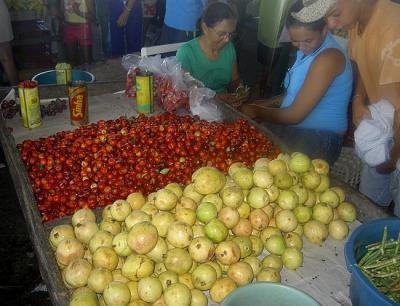Institutional news 3 April 2024
- Home
- Worldwide
- Our regional offices
- Brazil and Southern Cone Countries

Brazil and Southern Cone Countries
Combining quality science and development impact
CIRAD's activities in Brazil take account of the fact that this vast emerging country is both an agricultural heavyweight and a growing scientific power. By means of partnerships that combine quality science and development impact, we aim to generate research results of benefit to both France and Brazil, which can be classed as public assets and could be rolled out to other developing countries, particularly in Africa.
The main agro-ecosystems being studied are in the Amazon Basin and the semi-arid Northeast of Brazil.
Regional cooperation: strong links with the scientific and agricultural communities in Brazil
For more than 40 years, CIRAD has been forging close, diverse links with the scientific and agricultural communities in Brazil. It has built research and development partnerships with EMBRAPA, the country's leading agricultural research player, with several federal and state universities, and with R&D structures within ministries and development organizations. We also have research operations in Argentina and Bolivia, with the Instituto Nacional de Tecnologia Agropecuaria (INTA), CIAT and the Instituto Nacional de Innovacion Agropecuaria y Forestal (INIAF).
In all, CIRAD has 14 researchers working in the Southern Cone. Thirteen are in Brazil, in four regions: Belém and Paragominas in the Amazon (North); São Paulo, Piracicaba and Rio de Janeiro (Southeast); Brasília and Santo Antônio de Goiás (Mid-West); and Ilhéus and São Luis do Maranhão (Northeast). One researcher is based at INIAF in Bolivia. Our regional office, with a Regional Director and three staff members, is in Brasília.
Map
CIRAD works in six countries in the region, and is involved in several R&D projects, three platforms in partnership (dPs) and an environmental research observatory. The map shows a selection of projects. The dots show the countries in which CIRAD and its partners work. They do not show specific sites.
Key figures
- 15 expatriate researchers
- 50 PhD and Masters students supervised per year
- 80 to 120 missions per year
- 2 platforms in partnership
Main research fields
- Territory-based management of water resources and the agroecological transition in semi-arid regions.
- Genetic improvement of agricultural species for water stress and disease resistance.
- Territory-based development and viability of family farming in the Amazon.
- Public policy and rural development.
- Sustainable management and assessment of the environmental impacts of planted forests.
R&D projects and appraisals are also conducted with firms in the rubber, eucalyptus and oil palm plantation and biomass energy sectors, etc.
Platforms in partnership

Forests, agriculture and territories in the Amazon
How can we reconcile environmental protection and support for rural populations in this region, which plays a decisive ecological role on a global scale and has huge agricultural potential?

Public policy and rural development in Latin America
Which public policies to promote sustainable and equitable development of rural areas in Latin America?
Operating countries
Teaching and training
CIRAD researchers contribute to teaching operations in Brazil, at both federal and state universities. They supervise Brazilian and French Masters and PhD students and help to organize researcher schools and training seminars.
Student training
Our researchers supervise some 50 European, South American and African PhD and Masters students each year.
Reception and training of researchers from partner organizations
CIRAD receives around 20 researchers from Brazil and other southern Cone countries in France each year, in close collaboration with INRAE, French and European universities and other members of Agreenium, particularly the EMBRAPA Labex in Montpellier.
Some books and documents
Alternativas para o bioma Cerrado: agroextrativismo e uso sustentável da sociobiodiversidade
Referência : Diniz, Janaína Deane de Abreu Sá; Passos, Carlos José Sousa. (Org.). Alternativas para o bioma Cerrado: agroextrativismo e uso sustentável da sociobiodiversidade. Stéphane Guéneau. Brasília, DF. Editora IEB Mil Folhas, 2020.
Construção de Políticas Estaduais de Agroecologia e Produção Orgâni- ca no Brasil: avanços, obstáculos e efeitos das dinâmicas subnacionais
Referência : Sabourin, E ; Colonna J. ; Guéneau S. ; Tadeu da Silva, L. R. (2019) Construção de Políticas Estaduais de Agroecologia e Produção Orgâni- ca no Brasil: avanços, obstáculos e efeitos das dinâmicas subnacionais. Curitiba: PR, Brasil, Editora CRV e Red PP-AL, 272p. ISBN 978-85-444-3601-1 / DOI 10.24824/978854443601.1
Scientific publications
See all publications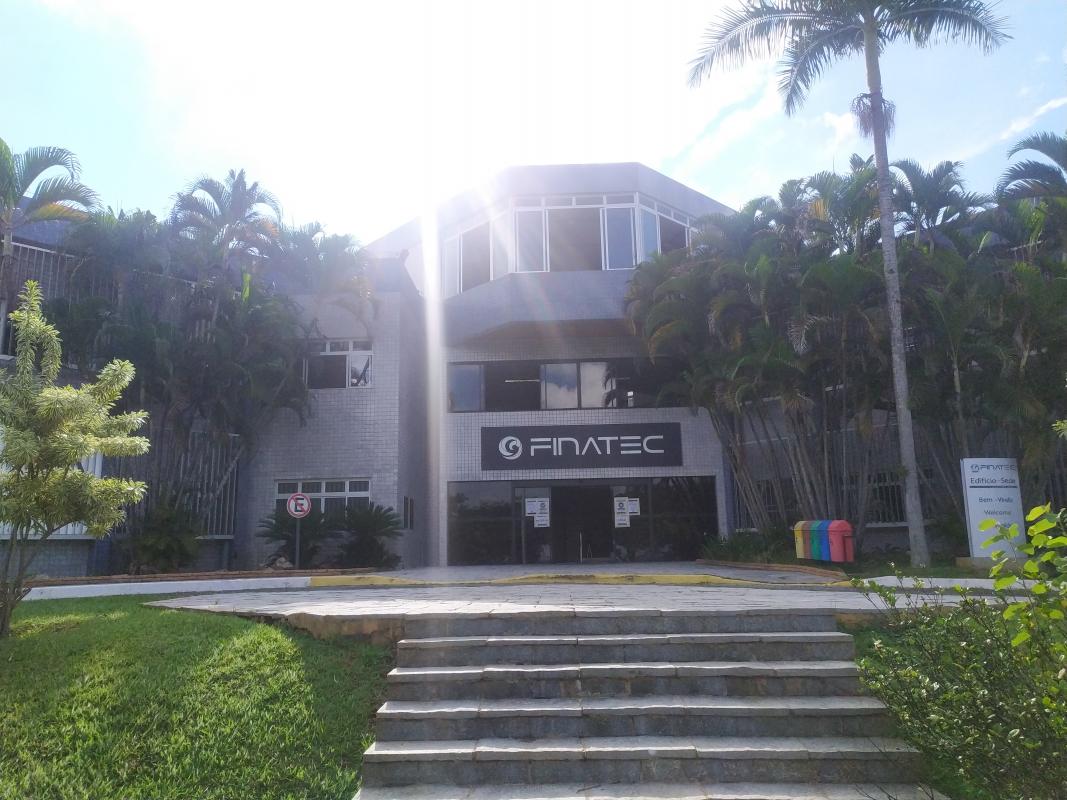
Contact
CIRAD Regional Office for Brazil and Southern Cone -
Av. L3 Norte, Campus Universitário Darcy Ribeiro, Asa Norte -
Édifice Finatec, G -
- Rooms 202 to 214 -
Brasília - DF, 70910-900
For correspondence:
CEP: 70842-970, Caixa Postal 4522 -
SHC/N EQ 204/404 Lote Único, Asa Norte, Brasília-DF, Brazil
Tel.: +55 61 33 66 16 01
























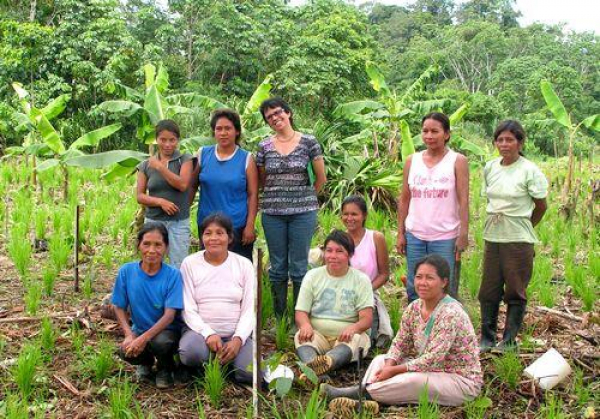


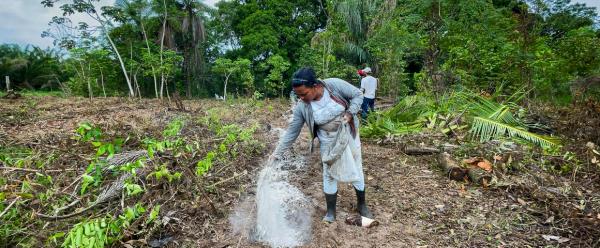
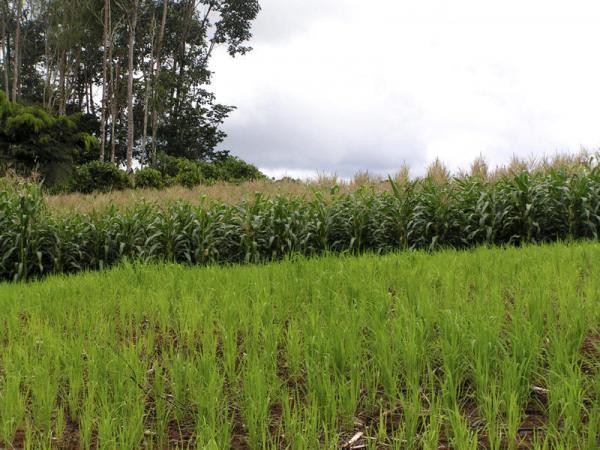
.jpg)
